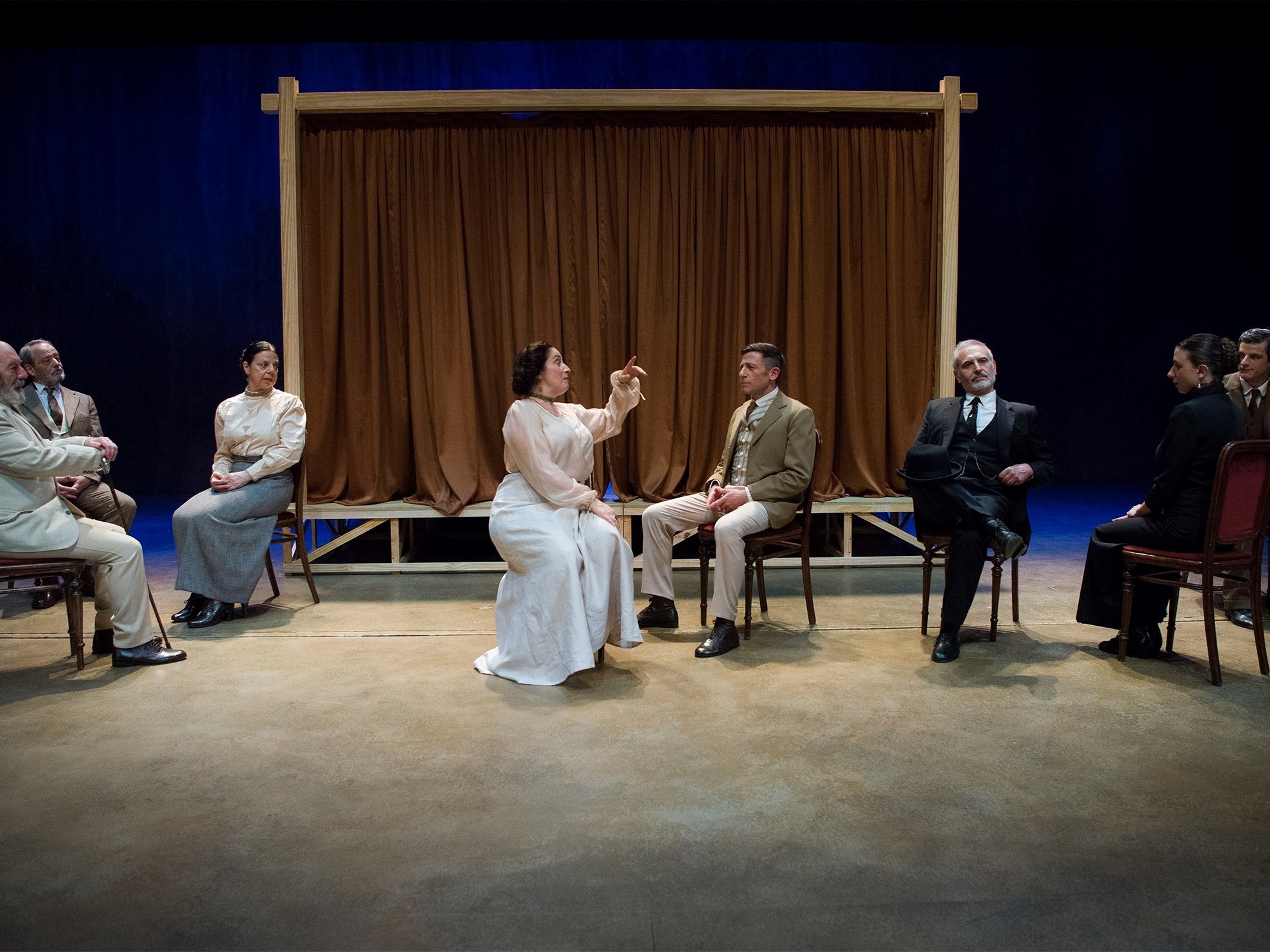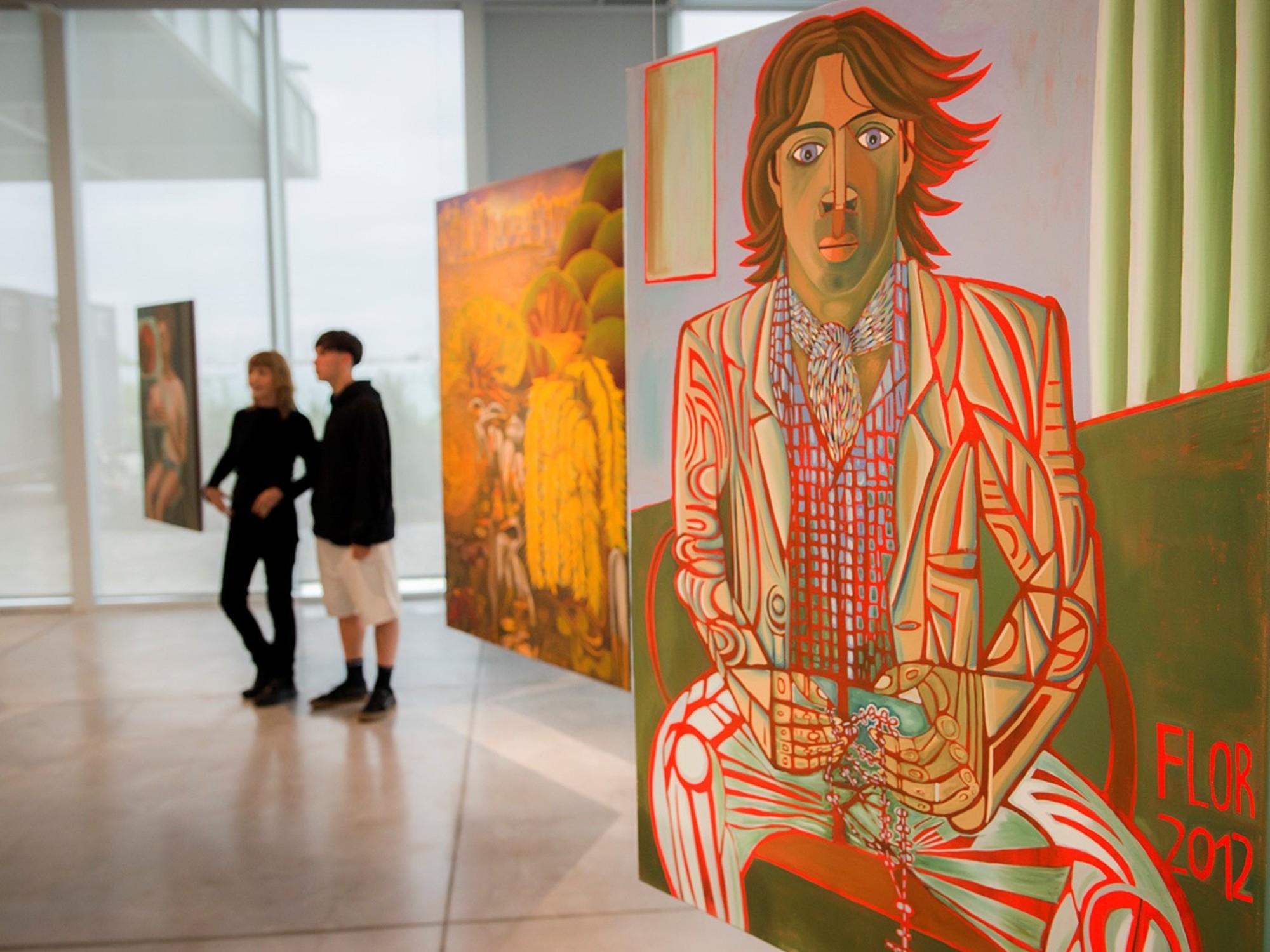Mussolini, the son of the century: as fascinating as he is repulsive

"Make Italy Great Again," says actor Luca Marinelli, portraying Benito Mussolini, as he breaks the fourth wall. The line pierces the heart of M, the Son of the Century (on Mubi), the series directed by Joe Wright based on the novel of the same name by Antonio Scurati, which chronicles the rise of the Italian dictator from the founding of the Fascist Party in 1919 to his historic speech in the Italian Parliament in 1924, following the assassination of socialist deputy Giacomo Matteotti.
Anyone expecting a classic biographical series about the rise of fascism in the 20th century will find something diametrically opposed to their expectations. It's not simply a reconstruction of the era, but rather an exploration of how authoritarian leadership consolidates its power when democracy fails to provide answers and social anxiety erupts into fury.
It's not the narrative itself that makes the viewer uncomfortable. Rather, it's Wright's narrative style that unsettles them. Marinelli constantly offers and demands explanations from the audience. Mussolini demands to be understood.
The series offers a sensory journey rather than a historical one. The electronic music composed by Tom Rowlands (one of the two members of the Chemical Brothers) infuses the narrative with a modern, almost hypnotic energy that breaks with chronology and places the action in an undefined time, suspended between the 1920s and the immediacy of the present. This sense of "no time" transforms each scene into a disquieting mirror.
The series' editing, which combines real archives that interact with black and white scenes, is at times confusing, with the intention of showing us that reality and fiction merge to create a disruptive narrative.
Throughout the story, we will explore the disillusionment of the Italian people. The protagonists are not only the elite but also the forgotten: the veterans of the First World War , the impoverished workers, and the young people without a future. All of them find in Mussolini a glimmer of hope , a change of course that will lead them toward a better tomorrow.
Each episode reveals how fascist discourse seeped into Italian society, into cafes, newspapers, and everyday conversations, until it became common sense.
 The series combines real archival footage with black and white scenes.
The series combines real archival footage with black and white scenes.The fascist leader doesn't appear as a monster out of step with his time, but as someone who understands the power of the media and political emotion. Mussolini creates his own press, manipulates information, and turns political rallies into a circus spectacle. The filmmaker opens our eyes to the birth of a new era: the politician who seeks to fascinate, the one who understands that perhaps the staging is more important than the truth.
Wright makes no secret of his fascination with the character. His gaze is divided between repulsion and fascination. This ambiguity is central: it shows that the danger lies not only in his violence, but also in his capacity to seduce, and we constantly wonder why the myth of the strong leader, the providential man who promises order in the face of chaos, continues to be so appealing.
His meteoric rise—from socialist activist to prime minister in just five years—has an echo that resonates powerfully in the present. The series portrays a country where liberal democracy seems exhausted and institutions no longer inspire confidence.
M, the Son of the Century is also a period piece. A fresco depicting an Italy, until then monarchical, gripped by successive proletarian uprisings. It places Mussolini at the center of the scene as an outsider, battling a supposedly antiquated, decaying, and corrupt political class. The fascist leader arrives, quite literally, to “fight the establishment.”
In the first chapter, a grenade spins on his desk. It's his personality: always on the verge of exploding, fueled by tension and a lust for power.
The project is not merely an exercise in historical memory. It is a reflection on the present. The series reveals how authoritarian regimes thrive in times of crisis, when uncertainty and precariousness become fertile ground for fear. Faced with this collective feeling, authoritarianism offers simple certainties: an internal enemy, a national identity, and an infallible leader. Wright's series portrays this process starkly, trusting in the intelligence of its viewers.
 Mussolini and Adolf Hitler.
Mussolini and Adolf Hitler.M, the Son of the Century is not just a series about the past; it's a warning about the present. The director reconstructs that era's atmosphere, dominated by disillusionment, violence, and misinformation—a context in which extremist rhetoric regains its appeal. What unfolds on screen is not merely the birth of fascism, but the anatomy of modern authoritarianism: the ease with which democracies, weakened by uncertainty, can succumb to promises of order and grandeur.
The series doesn't attempt to close the debate about Mussolini or offer definitive answers. Its ambition lies elsewhere: to show how, a century later, we continue to face the same dilemmas. Because what haunts us (as its director suggests) doesn't return from nowhere. It simply changes form, tone, and language.
Clarin





